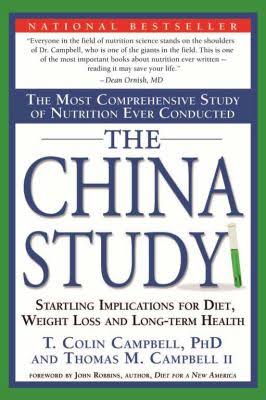BenBella CEO Glenn Yeffeth on the future of publishing
 BenBella Books occupies a unique position in the publishing business. Rather than pay high advances, BenBella offers a collaborative process with more upside for the author. It’s an attractive alternative to the publishing options I’ve showcased before. Here’s an interview with BenBella’s CEO and publisher, Glenn Yeffeth.
BenBella Books occupies a unique position in the publishing business. Rather than pay high advances, BenBella offers a collaborative process with more upside for the author. It’s an attractive alternative to the publishing options I’ve showcased before. Here’s an interview with BenBella’s CEO and publisher, Glenn Yeffeth.
What sets BenBella Books apart from other publishers?
BenBella aims to combine the best of a small publishing boutique – lots of care and attention in the publishing process – with the best of a large publishing house – world-class distribution and packaging. Add to that an aggressive and creative approach to marketing, and that’s pretty much our formula for publishing. We are continually striving to improve, but so far so good – 14 New York Times bestsellers and twice on Publishers Weekly’s fastest growing publishers list. We also offer selected authors profit-sharing deals with high upside, which has allowed us to attract some very impressive authors.
 How and why did you start BenBella?
How and why did you start BenBella?
I started BenBella because I love books and I love marketing, and I couldn’t see a better way to combine those two passions.
What’s going to happen to the publishing business?
Traditional publishing will – like so many other industries – need to evolve with the times. There will be always big books, by celebrities and famous authors, that require millions of dollars of investment and worldwide coordination. The big publishers will be handling these for these sorts of books for the foreseeable future. For smaller titles, less important to the big houses but still quite valuable, I think there will be a migration to smaller publishers that offer higher royalties and a much greater degree of partnership. There will also be a migration to self-publishing, but, in my view, a small percentage of authors are equipped to both write great books, and successfully edit, package and market their titles.
 Tell me about some of your best selling books and why they took off.
Tell me about some of your best selling books and why they took off.
The China Study, a science-heavy nutrition book that was very difficult to get major publicity for, took off because of grass roots marketing in the vegan community and the author’s relentless speaking and promotion. An initial 3,000 copy laydown turned into over 1 million sold and still going strong. On the other end of the spectrum, our controversial true crime book Presumed Guilty received major national publicity and hit the New York Times list immediately. Every book is different and needs to be marketed uniquely.
What advice would you give a nonfiction author considering publishing alternatives?
Think of your book as a product entering a competitive marketplace and think creatively about how your book will win against the competition. Once you understand that, the decision about how to publish might get clearer.
What the typical author’s biggest mistake or misconception?
The biggest mistake I hear is that platform is the most important element of publishing a book. It’s not. The most important thing is writing a really great book. While great books can fail, mediocre books usually do. But a great book doesn’t mean that it’ll be a favorite of book critics. It means that readers in the target market get genuinely excited by the book. Word of mouth is still how most books sell. When someone says that “most bestsellers aren’t very good,” to me that represents a lack of understanding of what a great book really is. What they are really saying is that they aren’t in the target market.
Amazon sits astride the book business, determining the future of splits, distribution, formats, and, it seems, nearly everything else. How should we think about them in the industry?
Amazon makes it much more possible to profitably write and publish for a more targeted audience. It’s increased profitability in the publishing industry and improved access and the reading experience for millions of readers. From a societal point of view, Amazon has been almost entirely positive. Almost every argument I’ve read for the negative impact of Amazon has been about what they might do.
What can you tell us that will give hope to all the book lovers out there?
This is a golden age of books, with more books, more authors, at lower prices, than ever before. There are more ways of operating as an author and a publisher. Independent bookstores seem to be thriving, and startups are exploring new options for readers.
BenBella Books occupies a unique position in the publishing business.
Bullshit is any form of communication that does not communicate accurately and clearly. This includes any of the following (regrettably, this is not a complete list):
overuse of meaningless qualifying words (e.g., “generally,” “very,” “deeply”)
He points out a critical piece of books and marketing: there is no guarantee. There’s no five-point checklist, no manifesto for success. It’s all a matter of probabilities. Many things such as book covers, the publisher, etc. are merely hygiene factors.